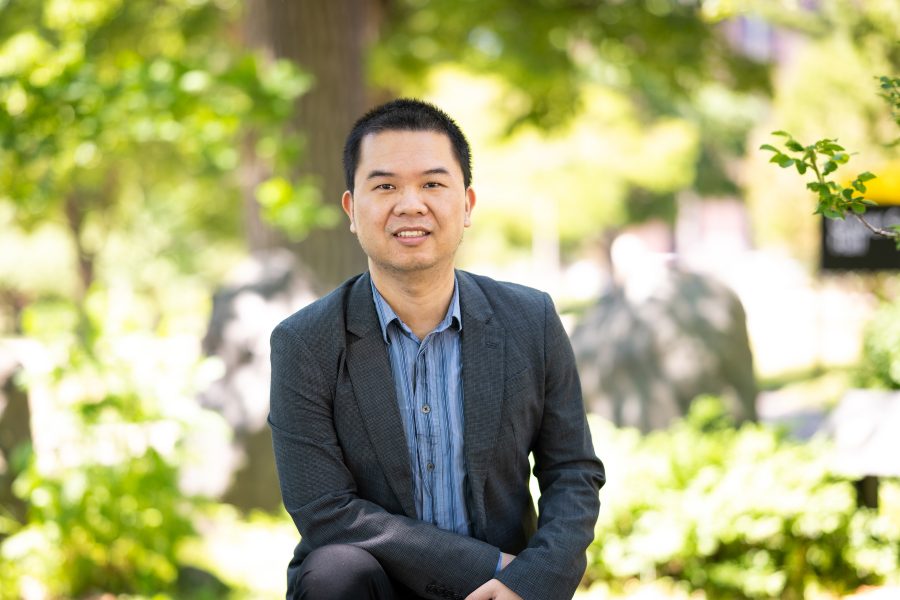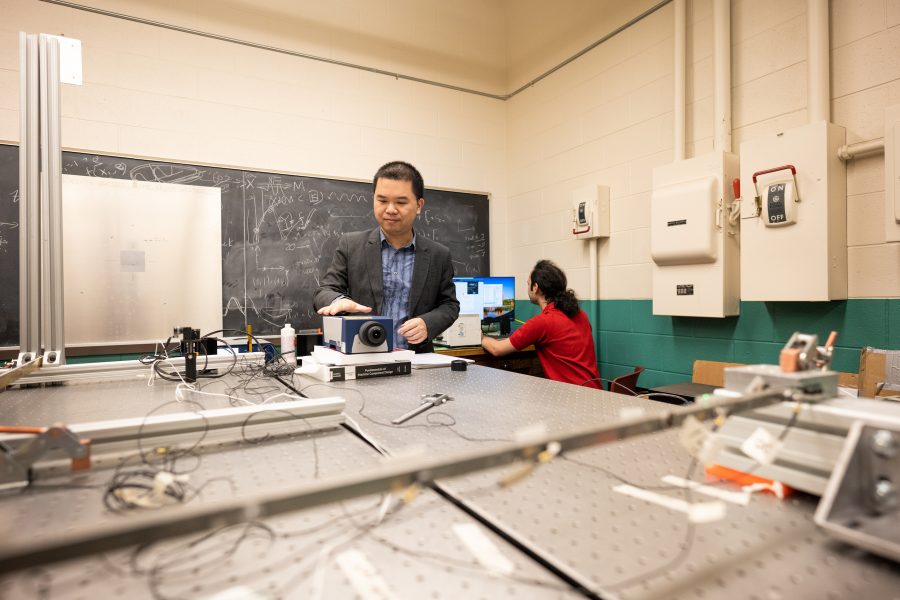
Yongchao Yang, an assistant professor of Mechanical Engineering – Engineering Mechanics at Michigan Technological University, is the recipient of the 2022 Achenbach Medal. This international award recognizes a young investigator, within 10 years of earning their PhD, who has made an outstanding contribution to the field of structural health monitoring. This includes the monitoring of bridges, aircraft, pipelines, buildings and other infrastructure and engineering systems. Each year a single individual worldwide is selected for the honor.
The Achenbach medal is named in honor of Jan Achenbach, professor emeritus and Walter P. Murphy Professor and Distinguished McCormick School Professor at Northwestern University. The medal was presented to Dr. Yang in the International Workshop on Structural Health Monitoring (IWSHM) on July 6 at the European Workshop on Structural Health Monitoring (EWSHM 2022) in Palermo, Italy. The workshop is held each year, rotating between Stanford University and a location in Europe.
Yang came to Michigan Tech from Argonne National Lab in August 2019, where he worked as a staff scientist. He earned a bachelor’s degree in Engineering at Harbin Institute of Technology in 2010, and a PhD in Structural Engineering at Rice University in 2014. He was a Director’s Postdoctoral Fellow at Los Alamos National Laboratory from 2015 to 2018.
“The process of implementing a damage identification strategy for aerospace, civil and mechanical engineering infrastructure is referred to as structural health monitoring, or SHM,” says Yang, quoting the definition proposed by one of the pioneering SHM researchers, Dr. Charles Farrar at Los Alamos National Laboratory. Yang worked with Farrar during his postdoctoral research.

Yang’s research centers around structural dynamics in the broad areas of cyber-physical systems. “I hope to better understand the dynamic behaviors of structures and systems, in order to enable intelligent engineering systems–including software applications for structural health monitoring, and less invasive and non-destructive evaluations. That includes inferring and detecting any abnormal change in the dynamic features indicative of damage in the system.”
Yang leads the Dynamics & Intelligent Systems Group at Michigan Tech, consisting of postdocs, doctoral, master’s and undergraduate students. The group’s specific research includes sensing, modeling, analysis, and control of dynamic structures and systems.
“Our work in the lab spans the broad areas of system identification and control. We leverage approaches from experimental and computational mechanics, computer vision and machine learning—deep learning—with optical and acoustical tools,” Yang explains. “We seek to develop novel computational sensing tools and ‘physics-guided’ machine learning methodology. Our goal is to enable high-fidelity modeling and characterization of complex structural, material, and system behaviors.”
Sponsors of Yang’s research include the US Department of Energy, US Federal Highway Administration, Argonne National Lab, Los Alamos National Lab, Hyundai Corp., the MTRAC Innovation Hub for Advanced Computing at Wayne State University, and DARPA, the Defense Advanced Research Projects Agency.